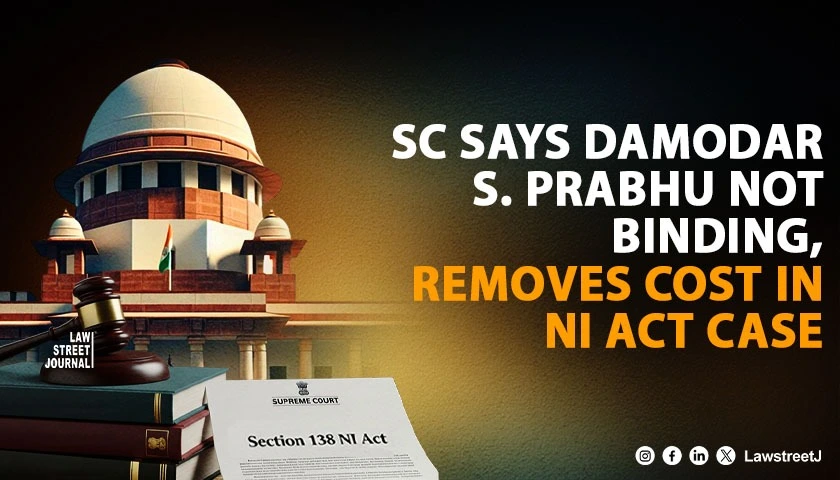New Delhi: The Supreme Court has held that the Bombay High Court was not justified in directing an accused in a cheque-dishonour case to deposit costs with the State Legal Services Authority when the complainant had already accepted the settlement and the record showed that the accused could not afford to make the payment.
The Bench of Justices M.M. Sundresh and Satish Chandra Sharma passed the order while considering an appeal filed by Rajeev Khandelwal, who had challenged only the cost imposed during the disposal of his revision petition.
The conviction under Section 138 of the Negotiable Instruments Act had been affirmed by the Sessions Court, after which the appellant approached the High Court in revision. During the pendency of that proceeding, the parties resolved the dispute, and the High Court accepted the compromise. However, applying the guidelines in Damodar S. Prabhu v. Sayed Babalal H., the High Court directed the appellant to deposit costs with the Legal Services Authority as a condition for acquittal. This part of the order alone was assailed before the Supreme Court.
At the hearing, counsel for the appellant argued that Damodar S. Prabhu was decided under Article 142 of the Constitution and therefore could not automatically operate as a binding rule for every instance of compounding at the revisional stage. The Court’s attention was also drawn to the fact that the complainant had not sought any additional amount beyond the settlement and that the appellant had specifically stated that he was financially incapable of bearing the cost imposed.
Referring to these circumstances, the Bench observed that the complainant had no objection to the relief sought by the appellant and that the appellant’s inability to make the deposit was not disputed by the respondents. The Court further noted that mechanically treating the cost contemplated in Damodar S. Prabhu as a mandatory consequence in every settlement would discourage compromises at later stages and may not align with the facts of particular cases. The judgment in Damodar S. Prabhu, the Court stated, could not be construed as a binding precedent that overrides case-specific considerations.
The Bench therefore concluded that the direction requiring the appellant to deposit costs with the Legal Services Authority could not be sustained in law, especially when the complainant did not desire any further payment and the appellant had demonstrated his inability to comply.
The appeal was accordingly disposed of by setting aside the cost condition, and all pending applications were also closed.
Appearance:
The appellant was represented by Mr. Navin Pahwa, Senior Advocate, assisted by Mr. S.S. Sobti, Mr. Mohit D. Ram and Ms. Sthavi Asthana, Advocates.
The respondents were represented by Mr. Anand Dilip Landge, Mr. Siddharth Dharmadhikari and Mr. Shrirang B. Varma, Advocates; Mr. Aaditya Aniruddha Pande, AOR; along with Mr. Ashwani Kumar, AOR; Ms. Iti Sharma and Mr. Puneet Sharma, Advocates.
Case Title: Rajeev Khandelwal v. State of Maharashtra & Anr.











